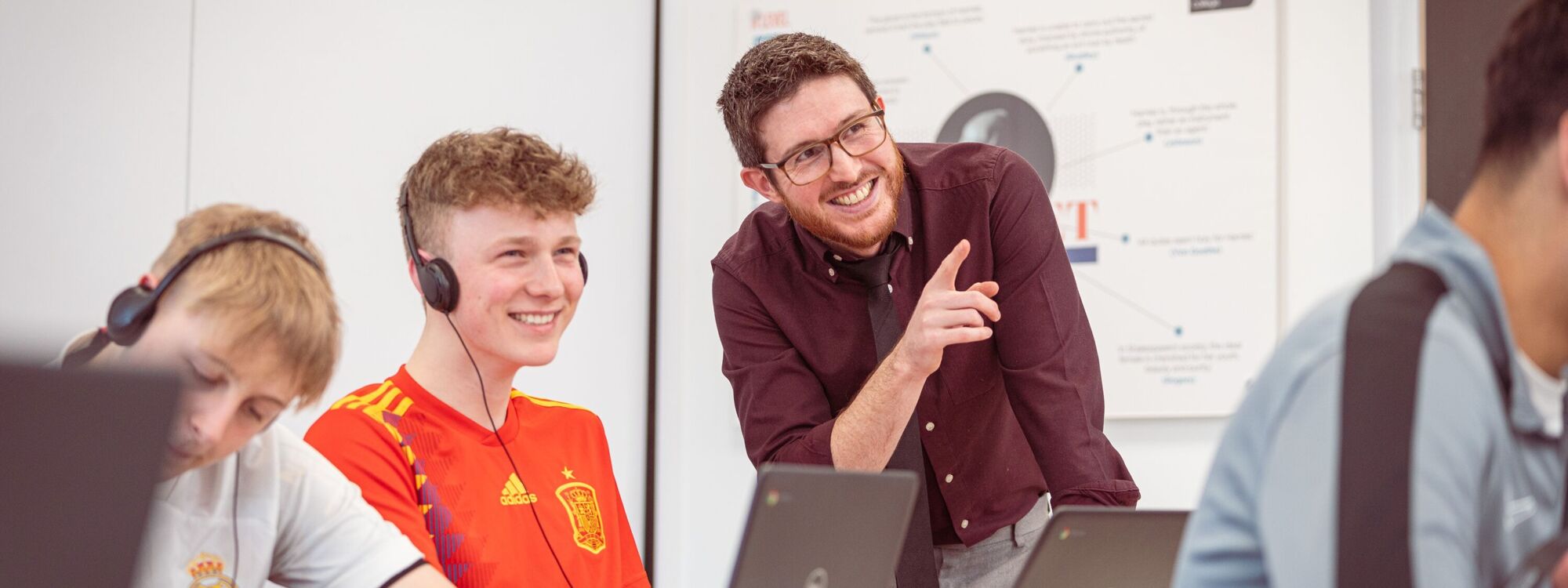Spanish is the second most spoken language in the world with over 400 million native speakers and official status in 21 countries in South, Central and North America, as well as Africa and Europe. Its cultural richness goes hand-in-hand with its potential in the world of work. While Spain is still the UK’s eighth largest goods export market, the real scope for growth is in the emerging countries of Latin America: Argentina, Chile, Colombia and Mexico.
Entry requirements
To study at RSFC, you must have achieved a minimum of five GCSEs or equivalent at grade 4 or above across four separate subjects, including GCSE mathematics and/or English language. In addition, a grade 5 or above is required in GSCE Spanish.
Why study this course?
Studying a foreign language teaches you all the skills that employers want in their employees: an analytical mind, good thought processes, cultural and intercultural awareness, good communication and the ability to be a good team player. Speaking Spanish might increase your salary by as much as 20% and it will give you a head start on any other potential employees.
What can you expect from A level Spanish?
This subject will help you to develop your interest and awareness of the Hispanic language and culture. With this A level, you will not only learn how to communicate at a higher level in Spanish, but you will also develop your general study skills. All students are encouraged to take risks and learn from their own mistakes, so step out of your comfort zone and experience the joy of speaking another language.
KEY TOPICS - YEAR 1
• Modern and traditional values in Spanish societies
• Gender equality
• Influence of cyberspace and modern idols nowadays
• Regional identity in Spain and cultural heritage in the Hispanic world
You will also study one cinematographic work: El Laberinto del Fauno
KEY TOPICS - YEAR 2
• Immigration
• Racism
• Integration across Hispanic societies
• Youth as citizens of tomorrow
• Monarchies and dictatorships in the Hispanic world and social movements that have changed Spanish-speaking countries
Study of a literary work: La Casa de Bernarda Alba
What can I do with a qualification in Spanish?
There will be a range of opportunities open to you where you can continue to use and further develop your language skills and knowledge of contemporary society. Some students choose to study degree courses in languages; others pursue a degree in another subject but choose a language option alongside it. Regardless, if you are interested in career paths such as business, diplomacy and foreign relations, travel and tourism, translation or journalism, learning Spanish is a great option for you.
How is this course assessed?
Assessment is through examination at the end of the two-year course. There are three papers:
Paper 1 : Listening, reading and writing
Paper 2 : Written response to film and text (or two texts)
Paper 3 : Speaking - individual research project and discussion
Who is this course for?
If you are interested in languages and communication and you enjoy learning about other cultures, then our Spanish course is for you. Currently, fewer and fewer students of your age are studying languages; by taking A level Spanish you will be placing yourself in an elite group of people whose linguistic skills will no doubt be highly sought after later in life.


